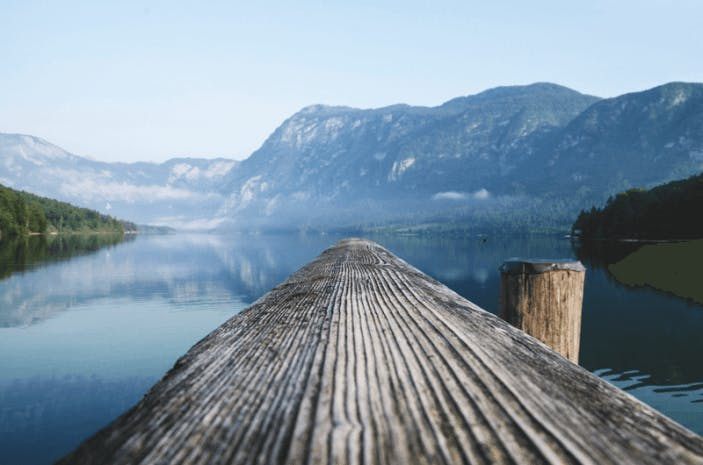
Colorado is unmatched in both its natural beauty and the fascination it inspires. No small part of this has to do with the stark contrast between the lush and wild mountainous regions of the state and the heavily-developed Denver foothills. If Colorado’s comparatively low crime rate is any indication, the state is home to some of the safest towns, cities and neighborhoods in the country. Is it any wonder that Colorado continues to grow in population much faster than most of the states around it? Whether you enjoy awe-inspiring views at 10,000 feet above sea level, or prefer whisking down rapid, untamed rivers, Colorado has a little bit of something for everyone. That diversity, combined with the good nature of its residents, does mean that Colorado unfortunately attracts those who seek to take advantage of the situation. The central and southwestern parts of Colorado are especially at risk, with crime data showing some of the highest burglary rates in the state occurring in those areas. Although living in the Centennial state may well be a dream come true for some, home security in Colorado should not be overlooked.
Home Security Provider Requirements in Colorado
If the state’s recent marijuana laws are any indication, Colorado places a good amount of emphasis on minimizing restrictions on its residents. This philosophy can also be seen in the way the state regulates businesses. No, we don’t mean selling and distributing (now legal) recreational drugs in the state. While some industries in Colorado do have fairly rigid rules governing how they do business in the state, home security providers enjoy a mostly free business environment. On a state level, Colorado shares a lot in common with Missouri. As hard as that may seem, it’s true! Like Missouri, the state government in Colorado does not have any specific requirements on home security providers.
The primary document defining what rules home security providers must follow is fairly thick with legalese. You may just need some (again, now legal in Colorado) easily-obtainable marijuana to make your way through it. It’s long, boring and just a bit mentally draining. We would advise skipping through most of it and getting right to the very end (literally): How it governs the alarm system installers. Interestingly, the law states that “fire alarm” installations are exempt from having to be installed by certified electricians – as long as the device is under 50 volts. What this means is that if your security company wants to install a system that is low voltage (as most of them typically are), you may not get a certified electrician installing it. Yikes. Sleep well with that knowledge. Your best alternative is to find a wireless system and install it yourself.
This may raise some concerns for those of you who, well, prefer to have work of any kind done by certified and licensed professionals. This is not to say that individuals without licenses can’t do great work. But there is a certain…peace of mind that does come with having your security system installer be someone who you can fully trust will not accidentally connect a wrong wire somewhere. If you don’t want to go wireless, your best solution is to ask. Ask your potential home security provider about their hiring process. Research customer reviews. It’s your home, after all. They’re just installing in it.
Installations aside, if you live in Colorado, you may have noticed that different municipalities have very different ways of doing things. That’s one of the great things about Colorado. Regardless of your background or beliefs, there’s a place for you somewhere in the state. But this varied nature also means that you’re going to find that different municipalities have different ways of handling home security providers and their users. The most common issue they handle is the one you might expect: false alarms. Yes, you may love pushing that alarm button every time a bear comes traipsing through the woods toward your house, but most police forces despise wasting their precious time and resources on your itchy alarm finger. Expect that you will find some kind of ordinance passed in your county or city that has light-to-severe restrictions on false alarms.
A good example is Denver. Those of you in Denver, the state’s most populated city, may have almost double the crime rate as your fellow Coloradans, but false alarms can be costly. The city not only requires businesses and residents to obtain permits, but even requires businesses who operate in the city to have the systems monitored by an outside monitoring company. Five false alarms will place your home on “general response” status, meaning police will only come if they feel like it and if they have the time. False alarms will net you $50.00 every time, regardless of how many, and alarm companies will have to shell out $25 every time you do it. Rest assured that you might find clauses within your contract that ensures those costs will be passed directly on to you.
So Coloradans, here’s the deal. We want you to get covered, especially if you live in a high-crime area. But we want you to be wise about it. Look up what local ordinances govern your area, and definitely do some research on the company providing you with services.
Erecting Home Security Cameras
As with most things in Colorado, the security camera laws are about as loose it gets. That’s saying a lot, considering most states have very strict rules about recording audio and video. Colorado is, in fact, one of the few states that does not prompt us to give a blanket statement about avoiding security cameras with audio recording capabilities. We’ll get into that in a second, but first, the important question: Should you, and can you, get security cameras in Colorado? The short and easy answer here is a resounding “Yes!” Go ahead and do it! Put them all over your house as if you were preparing for the zombie apocalypse! The only stipulation here is one that we give for every state. Recording anyone against their knowledge is a crime, and recording anyone in an area that is not public, not your own property and for inappropriate purposes (you know exactly what we mean by that) an even worse crime. If you are going to put up security cameras everywhere, make sure that they are not pointed toward any windows in neighboring houses. Even accidentally catching someone next door stripping down to the buff could result in a criminal charge.
That said, Colorado offers a lot of freedom with security cameras. The state uses “one-party” consent rules for audio recording. This means that audio captured is legal as long as one person in the conversation consents to it. That could very easily be you. The real gem, however, is that Colorado permits recording in your home of any type so long as you have made the public aware that you are recording. This includes cameras both inside and outside of your house. A few signs here and there are all it takes to cover that. So the next burglar who breaks in and strips naked inside of your house will have no grounds for suing you for inappropriately capturing his/her images.
Colorado has also revised their laws to make the penalty for breaking some of the recording laws less severe. Eavesdropping, which was once a Class 6 Felony in the state, is now a Class 1 Misdemeanor. Criminal invasion of privacy is now a class 2 misdemeanor. Coloradans really do have it good compared to most states in the U.S. Put those cameras up high and proud, Colorado!.
Keeping Safe During a Natural Disaster
Colorado is an excellent state for just about everything. Unfortunately, that “everything” also includes “natural disasters”. That said, Colorado is uniquely situated in such a way as to make the vast majority of the natural disasters that it does experience less severe and less frequent. Colorado Springs in particular is one of the safest cities in the country — if you’re trying to avoid natural disasters, that is. Furthermore, there are some natural disasters that those in Colorado simply will never see. Hurricanes, for example, are an impossibility for the state. But those in the state are no stranger to strong winter storms, which take the lives of state residents every year. There are some ways to protect yourself in the case of a strong winter storm.
First, remember that Colorado’s winter last longer than most parts of the country. Part of this is due to elevation. Even the lowest point in Colorado is over 3,000 feet above sea level. The state simply stays colder for longer periods of time. Strong snow storms, blizzards and ice are possible. During a blizzard or strong winter storm, be sure to dress warmly. Even if your home has central heating, electricity can go out quite easily due to the heavy weight of snow and strong winds. Ensure that you are well stocked with all of the essentials: food, clean water, spare clothes, generators, flashlights and fireplace wood. Due to the very dangerous conditions that can exist on the mountainous roads in the state, it’s best to avoid driving during and immediately after a snowstorm. Many people have died in Colorado due to driving on snowy mountain roads. Do not add to that statistic.
The Centennial State is certainly one state that looks toward the future. Freedom is everywhere, and regardless of what you want to do, chances are, you’ll find some place in Colorado that wants to let you do it — within reason, of course. Thankfully, that includes the desire to protect your home against those who want to extend that freedom to their sticky-fingered habits. Burglary might fly in other states, but in Colorado? Not so much.

